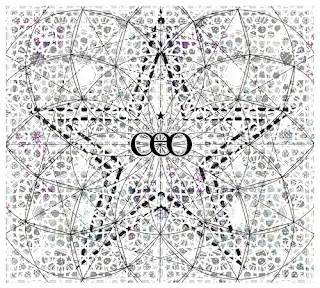Two albums. That's all it takes to make a summer awesome, really: add a few cool singles, some other minor long-runner crushes for variety, but in the end it's those two favorites that'll be playing, over and over, in your headphones on the street, on your portable stereo at the beach, or in your friends' car on your road-trip to wherever. Personally, my 2010 summer will forever be associated with Best Coast's Crazy for You and ceo's White Magic. What do these two albums have in common? Not much (besides, yes, having received the holy BNM tag from Pitchfork — sue me). They're actually pretty wildly different. But they each capture something about my summer, I guess; why else would they be the only two albums I've been able to listen to all the way through more than once in the past month?
Granted, it could be because they're not very long, hovering around the half-hour mark: ceo's White Magic falls a minute short with its eight songs, and Crazy For You goes barely a minute over with thirteen. It could also be because my summer has been, shall we say, peculiar — weird enough to make lengthy music listening a bit more difficult than usual. But I'll go for a third reason: I've been listening to these two albums a lot (and I mean, a LOT) simply because they're fantastic records.

White Magic is hard to wrap your head around at first. Or perhaps too easy: on first listen, you could dismiss it as a quick swirl of sugary but ultimately insignificant pop music. (Which, actually, you could also reduce Best Coast's music to.) And maybe that's why some people will discuss it as a "mere" summer album — destined to be nothing else, like all those cheesy summer top hits that you have barbecues to and dance to and make out to, only forget about them once the season is gone. But instead of capitalizing on the easy, blissful nostalgia usually associated with such summery melodies (see "chill-wave"), White Magic goes for immediacy, for an urgent rush; instead of evoking lost memories of youth, it fills its pop songs with the exuberant, hyper-active essence of youth.
The melodies are pure, hefty gold: "Illuminata" and its indelible guitar hook, "Love and Do What You Will" and its sly chorus, all the way down to "Come With Me"'s anthemic dance-pop, you won't find a bad song on the album (even the first and last songs, the most forgettable in the batch, are way more than decent). Every track brims with ideas, crammed with shits in tempo and atmosphere, with unpredictable melodic twists and turns. All in around 3 minutes.
But what makes White Magic truly unique, instead of limited to an exercise in genre (the Pet Sounds or Odyssey and Oracle remake), is its jaw-dropping production. Every second on White Magic literally explodes with sonic detail: masterfully arranged strings, acoustic guitars, bongos, muscular house beats, sampled whoops, warbled voices, shouts, knife-sharpening noises, and other seemingly random sounds, all packed into a bewildering storm that evokes, in its maximalist joy, Daft Punk's Discovery or The Avalanches' self-titled album. Like those illustrious predecessors, White Magic is seamless, perfectly controlled, never overblown or annoying. And like them, it offers a perfect blend of synthetic and organic. What all 21st-century pop should be.

Best Coast's music, by comparison, is simplicity incarnate. Not as well-produced as her BF Wavves' latest release, her album isn't quite lo-fi either, but it certainly won't dazzle you with its orchestration or guitar sound. But that doesn't matter. At all. Not just because Best Coast (aka Bethany Cosentino) doesn't seem to give a shit what you think about her record. But because Crazy for You, in its own way, is just as immediate, just as golden, just as melodic as ceo's restless lab-pop.
Crazy for You is a string of neat singles. It's laid-back. It's carried by Cosentino's honeyed, strong, stoned voice. But what makes it exceptional — when it is bound to be compared to fellow West-Coast rockers Dum Dum Girls, Vivian Girls, Lichtenstein, etc. — is Cosentino's spontaneous, unselfconscious delivery. Example: during opening single "Boyfriend," when Cosentino laments the fact that the "other girl" is "prettier and skinnier," her words begin to upset the rhythm, as if she's singing them on the spot, without any prior writing.
And that's the source of Crazy for You's immense charm: by shedding rhythms and rhymes at various moments in her songs (ok, no, ALL the time), Cosentino lets them breathe with lazy spontaneity, allowing her voice to hang on to notes pretty much as it pleases ("That makes me mooooooooooody"…), and making everything sound as though it was recorded in your own living room, almost by chance, by a friend who thought it would be awesome to come hang out and play music.
This spur-of-the-moment quality brings out the emotions in Best Coast's songs. These are pretty simple, straightforward, almost mundane emotions, all relationship-induced, too: love, longing, sadness, disgust. But in Best Coast's world, they're often mingled and hard to differentiate ("Well I don't love you/ But I don't hate you/ I don't know how I feel"). They're ambiguous. But at the same time they're expressed in plain, direct words, in a shining simplicity that makes them utterly relatable ("Pick up the phone/ I wanna talk/ About my day/ It really sucked" — you can't beat that sort of casual universality).
In the end, that's probably why I've been listening to Crazy for You so much this summer: in its straightforwardness and its immediacy, it's an album that makes you feel like you're talking to your best friend, trading heartbreak stories over breakfast beer and stale weed at two PM on a Sunday, while all the normal people are out at the beach.

No comments:
Post a Comment